Last updated: July 20, 2023
Article
Podcast 096: Advocating for preservation with the LGBT+ Archives Project of Louisiana
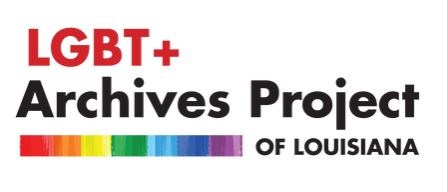
LGBT+ Archives Project
LGBT+ Archives Project
Catherine Cooper: Frank, I wanted to start with the question of what is the LGBT+ Archives Project, and how did it start?
Frank Perez: The LGBT Archives Project is a statewide collective, non-profit organization that works to promote the preservation of materials that chronicle queer history in Louisiana.
A lot of people think that we are an archival repository, but we’re not.
We basically reach out to the community and try to locate materials and say hey, if you’ve got anything that needs to be preserved, here are your options. So, we connect donors to institutions around the state. We have a very good collaborative relationship with museums, libraries, archival repositories throughout Louisiana, and we’ve been around about eight years.
We actually, when we talk about how we got started, about ten years ago, a local activist, who recently died, by the name of Stewart Butler, was 79 or 80 at that time, called together some people who are interested in local history, and pointed out the fact that he had a lot of material that he had saved from thirty, forty, years of activism and was worried about where it was going to go when he died, and pointed out that there were others in the same situation. And that kind of got the ball rolling amongst a group of people to figure out what can we do.
Originally, two men by the name of Mark Gonzalez, who was a longtime activist, and Otis Fennell, who owned a gay bookstore here in New Orleans, decided that they would do oral histories and they were going to call it The Legacy Project. And they only did one interview, they interviewed Stewart, but the more they got into it, they realized they really didn’t have the expertise, the equipment, or the time to successfully do it. And The Legacy Project kind of fell by the wayside, but from its ashes grew the LGBT+ Archives Project.
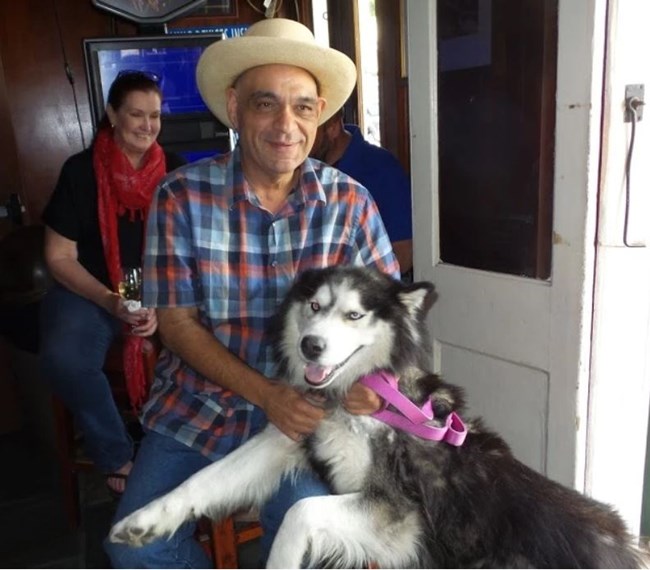
LGBT+ Archives Project of Louisiana
Questionnaires & Site Visits
About a dozen of us met once a month at Stewart’s house, in 2012, trying to figure out what we could do. And we spent that year kind of surveying what was out there. So, we sent questionnaires and did site visits to universities, archives, libraries, private institutions, like the Historic New Orleans Collection, just everyplace we could think of to basically find out what was there.
And our basic question was: Do you have LGBT material, and if you do what do you have, and do you want more? And if you don’t have any LGBT material, would you like some? We were delighted to discover that everybody we talked to was interested in acquiring this material.
So we, as a group of lay people, you know none of us had degrees in library sciences or archives or anything like that, we all had day jobs, we were all volunteers, decided that it would be wise not to try to reinvent the wheel, we didn’t have the money or the expertise to open up our own museum or archive.
We concluded that the best thing we could do would be to raise awareness about the need for preserving these materials. So that’s how the LGBT+ Archives Project was born. I guess you would date it to 2012 – 13. So, we’ve been around seven, eight years.
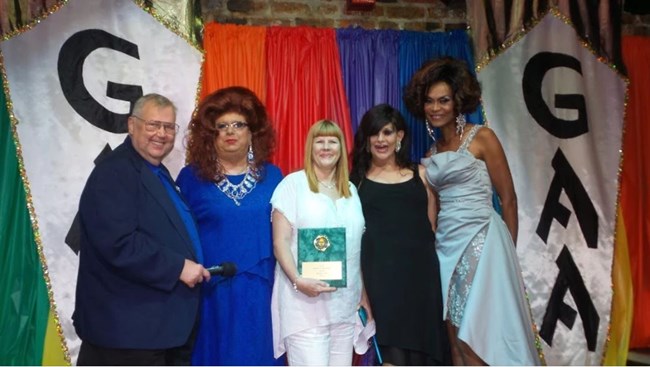
LGBT+ Archives Project of Louisiana
Materials Intake Process
Catherine Cooper: When you have people that come to you with these materials, what is your process for directing them or matching that collection to a repository? Is it geographically based?
Frank Perez: Ideally the best practice is to keep a collection close to the area that generated it, or in which it was generated.
Ultimately, the decision of where a collection goes is up to the donor. We don’t recommend, we don’t endorse, we just kind of say this is what’s available. Now, the advice that we give and the options that we lay out for the donor depend on the nature of the collection.
Collections can be quite varied. If it’s journals diaries, letters, minutes from meetings, any kind of paper documents, that’s going to want to go to an archive. That’s what an archive deals in, paper, rare primary source material. But if it is a three-dimensional object, say a gay carnival costume from a masquerade ball, well archives are not interested in three dimensional objects, that would have to go to a museum.
So, it just kind of depends on the nature of the material itself.
Another concern is audio and digital files. Some institutions don’t have the money or the staff or the expertise to handle audio visual equipment or digital born materials, so that’s another factor.
But to answer your question, it really depends on the nature of the materials.
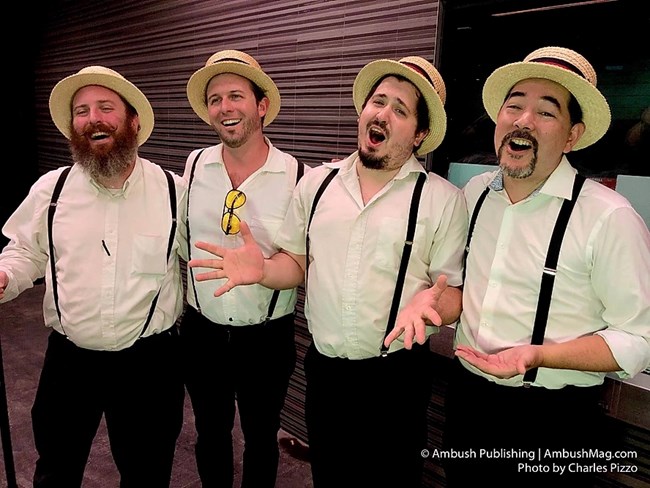
LGBT+ Archives Project of Louisiana
Materials in Louisiana
Catherine Cooper: And are you actively trying to find these materials in Louisiana?
Frank Perez: Yes, there are a couple ways we do that. We are very fortunate in that the more our name gets out there and the more people become aware that we exist, people will actually contact us with everything from super huge collections to what is called ephemera, these are posters or programs from events.
So sometimes people reach out to us and we’re happy to help them, but we also contact people that we know have big collections, and in addition to people, also organizations. So, any organization that is LGBT themed, should really consider designating some area repository as they’re official place to put their records.
So organizational records are very important, that’s minutes from board meetings, that’s agendas, that’s posters, flyers, pamphlets, that sort of thing.
One of the ways that we do that, that we’ve found to be very successful, is through an annual event that we conduct called the Oracle Gala. It’s an annual gala fund-raising event.
What we do at that is we honor a donor, whether it’s an individual or an organization, who has made a substantial donation of materials to an area institution.
What that enables us to do is approach people and organizations and say, hey, if you donate your materials to A, B, or C, we can make you the honoree at our Oracle Gala. And that seems to have been an effective way of motivating people and organizations to donate their materials.
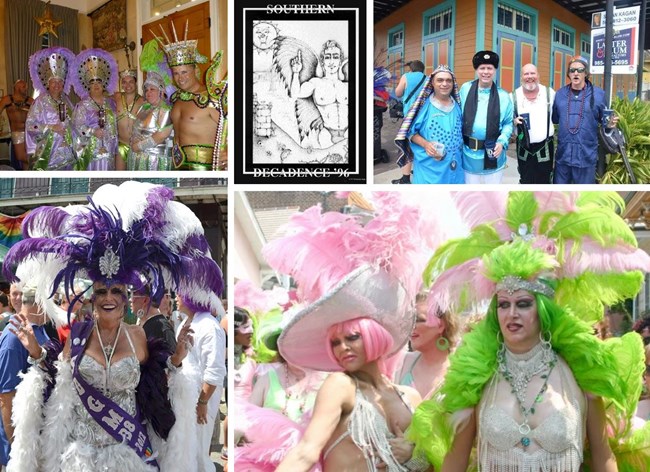
LGBT+ Archives Project of Louisiana
Community Outreach
Catherine Cooper: Would you say that has been one of your most successful avenues for engaging with communities? Are there other ways that you reach out?
Frank Perez: Oh, there are a lot of other ways that we do that. We do a number of programming events throughout the year. And these could be events like the Oracle Gala, I just told you about.
We also do an annual membership meeting where we have a keynote speaker. But we also conduct workshops, social events, things like that throughout the year. We have done panel discussions on the history of the AIDS epidemic in New Orleans.
We’ve done workshops on personal archiving at home, for hurricane season; we’ve done social mixers with other LGBT groups. So, we do a lot of different things that engage the community.
Catherine Cooper: So, looking through your website, you also have digital and digitized materials that are housed there. How do you decide what content to post?
Frank Perez: Well, if it’s available, we’ll post it.
Catherine Cooper: [Laugh].
Frank Perez: The problem is we’re an all-volunteer organization, and we all have day jobs, and we have no full-time paid employees.
So sometimes we have a lot of stuff that needs to get uploaded, pictures and videos, and they’re just in a backlog, they’re in queue. So, to answer your question specifically, if it’s anything that has to do with LGBT history in Louisiana, we’re happy to post it.
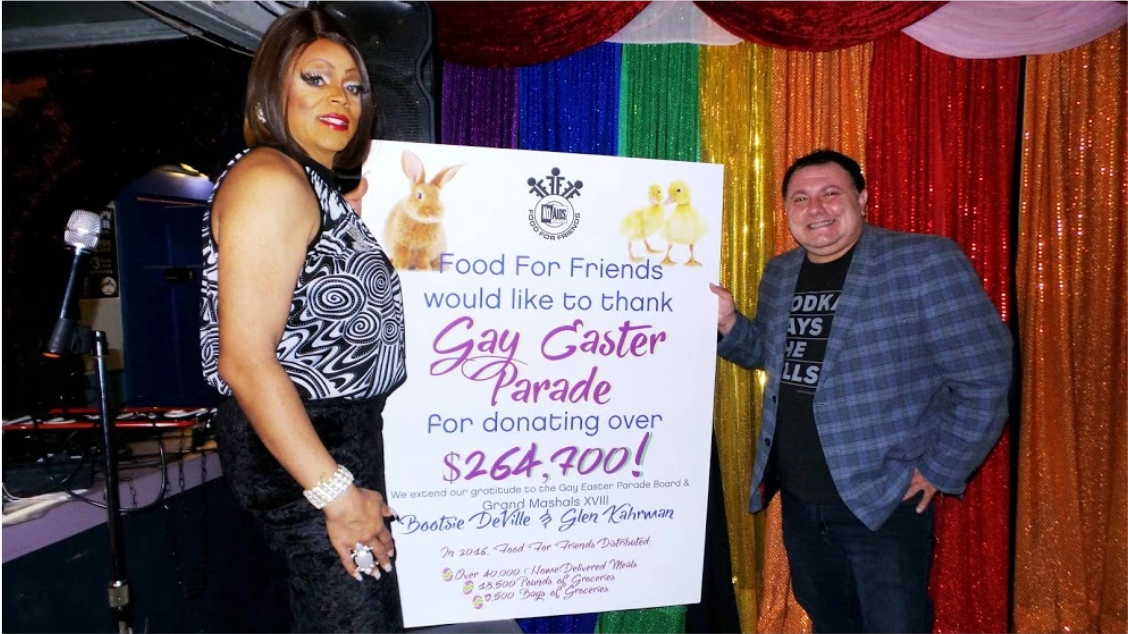
LGBT+ Archives Project of Louisiana
But we do have a photo gallery of events and organizations and people, and we’ve got a tremendous backlog of photos that need to be processed and uploaded.
If anybody would like to help us volunteer to scan pictures, or help with that, we could certainly put you to work with that. We are always expanding our bibliography which is online. We have a very extensive listing of materials that have been done, research that have been done, whether it’s magazine articles, doctoral dissertations, documentary films. We have specific bibliographies on HIV coverage in the newspapers in New Orleans in the eighties, transgender violence bibliography, so forth and so on. So, we’re always looking to expand that as well.
We’ve got a note on the bibliography that says, “If we’re missing anything that you know about, please let us know.” What that enables us to do is help researchers. So, in addition to facilitating donations to institutions, we’re also in a position to help researchers. We get contacted pretty regularly by graduate students, filmmakers, researchers, authors, whomever, wanting to know what’s available on a certain topic. We’re in a great position to say, if you’re interested in A, B, C here’s where you need to go, here’s where it is, here’s what’s available. So that saves researchers a lot of legwork and we’re happy to do that.
I should probably mention that we do have a pretty active oral history program. We collaborate with, we have a partnership with, the T. Harry Williams Center for Oral History at LSU, which is like one of the best in the country, to conduct oral interviews. These are audio, not visual interviews. We’ve done, I don’t know a little over half a dozen, maybe a dozen, interviews so far, and they’re currently in the process of being transcribed. They have to be transcribed and checked for accuracy before they can be uploaded. But we will eventually have that available on the website as well.
Similar Programs in Other States
Catherine Cooper: Are there similar programs to the LGBT+ Archives Project of Louisiana in other states?
Frank Perez: Yes, and no. The closest thing would be what’s called The Invisible Histories Project of which we are sort of a part, we collaborate with them. That is an organization that is working to preserve queer history throughout the southeastern United States from Texas to Georgia. They got started after we did, and they were pretty pleased to discover that we were already on our way here in Louisiana. They kind of do a state by state approach. They are based out of Alabama, but they have a great website, but we have collaborated with them on a number of projects. Throughout the country, especially in larger cities, like Chicago, New York, Los Angeles, San Francisco, and others, there are archival repositories that deal with very specific LGBT materials, but what we do here, with the archives project in Louisiana is unique in that we don’t operate our own facility or repository.
Get Involved
Catherine Cooper: If people want to get involved, either with your project or with similar projects in other parts of the country, what would you recommend?
Frank Perez: I would recommend that they visit our website, and email us, and ask what’s available. Depending on what people’s talents and interests are, we can usually find something for them to do. We’re always looking for volunteers.
People can follow us on Facebook, like our Facebook page, we have a pretty active social media presence. We are a 501-C-3 nonprofit, so we are always looking for financial support. People can donate on the website. So those are a couple of ways.
Read other Preservation Technology Podcast articles or learn more about the National Center for Preservation Technology and Training.
